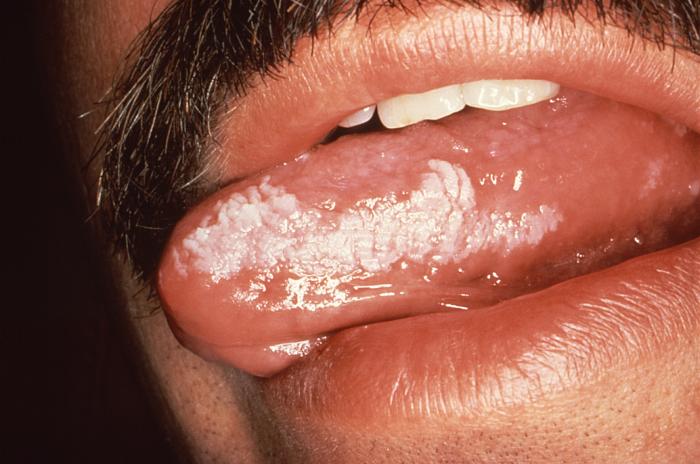
Diagnosed with Cancer? Your two greatest challenges are understanding cancer and understanding possible side effects from chemo and radiation. Knowledge is Power!
Learn about conventional, complementary, and integrative therapies.
Dealing with treatment side effects? Learn about evidence-based therapies to alleviate your symptoms.
Click the orange button to the right to learn more.
- You are here:
- Home »
- Blog »
- side effects ID and prevention »
- Oral Lichenoid w/ Epithelial Atypic?
Oral Lichenoid w/ Epithelial Atypic?

Hello David- my dentist discovered oral lichenoid mucositis with epithelial atypia. The comments on the pathology report read:
“This may represent reactive atypia, however we cannot exclude the possibility of early precancerous change.”
Since it’s not cancer yet…I was just wondering if Grape Seed Extract would maybe help the precancerous cell from turning into cancer. Thank you and very sorry for the long question- Roger
Hi Roger-
- Grapeseed extract
- Curcumin and
- Resveratrol
- Cancer Survivor
- Cancer Coach
- Director PeopleBeatingCancer
Oral lichen planus and lichenoid mucositis
“Oral lichen planus (OLP) is commonly found in middle-aged women. Although the cause is unknown, research points to several complex immunologic events and cells that are responsible for the inflammatory destruction and chronicity of these lesions.
Biopsy for histologic diagnosis is recommended. The mainstay of treatment remains topical corticosteroids; however, newer therapies such as immunomodulating agents are available for recalcitrant lesions.
In cases of lichenoid mucositis or reactions, treatment should be directed at identifying and removing the presumed cause. Given the apparent risk of squamous cell carcinoma in these patients, frequent follow-up and repeat biopsy are vital…”
Is oral cancer incidence among patients with oral lichen planus/oral lichenoid lesions underestimated?
“Results: Cancer was developed by four patients (3.9%), three males and one male. One of these developed three carcinomas, which were diagnosed at the follow-up visit (two in lower gingiva, one in floor of mouth); one had OLL and the other three had OLP. The carcinoma developed in mucosal areas with no OLP or OLL involvement in three of these patients, while OLP and cancer were diagnosed simultaneously in the fourth. Of the six carcinomas diagnosed, five (83.3%) were T1 and one (16.7%) T2. None were N+, and all patients remain alive and disease-free.
Conclusions: The cancer incidence in OLP and OLL appears to be underestimated due to the strict exclusion criteria usually imposed…”
Grape seed proanthocyanidins inhibit the proliferation, migration and invasion of tongue squamous cell carcinoma cells through suppressing the protein kinase B/nuclear factor-κB signaling pathway
“Tongue squamous cell carcinoma (TSCC) is the most common oral squamous cell carcinoma. Despite significant advances in combined therapies, the 5-year survival rate of patients with TSCC has not notably improved; this is due to regional recurrences and lymph node metastasis.
Grape seed proanthocyanidins (GSPs) are consumed as dietary supplements worldwide and possess anticancer activity against several different types of cancer. However, their effect on TSCC and the underlying mechanisms by which they function remain unclear.
In the present study, it was identified that GSPs significantly inhibited the viability and induced the apoptosis of Tca8113 cells in a dose-dependent manner…”
Curcumin suppresses the proliferation of oral squamous cell carcinoma through a specificity protein 1/nuclear factor-κB-dependent pathway
“Oral squamous cell carcinoma (OSCC) is the most common cancer of the oral cavity. Curcumin (Cur), a naturally derived compound, is reported to have broad-spectrum anticancer activity and is considered as an effective nuclear factor-κB (NF-κB) inhibitor.
The present study aimed to clarify the detailed molecular mechanism though which Cur regulates NF-κB pathway activity in OSCC.
The viability of HSC3 and CAL33 cells following treatment with Cur was determined using a Cell Counting Kit-8 assay. The protein and mRNA expression of specificity protein 1 (Sp1), p65 and heat shock factor 1 (HSF1) was determined by western blotting and reverse transcription-quantitative PCR analysis, respectively…
The results demonstrated that Cur significantly inhibited the viability and colony formation ability of HSC3 and CAL33 cells. In addition, Cur decreased the expression of Sp1, p65 and HSF1 by suppressing their transcription levels. Cur decreased NF-κB activity in OSCC cells, and Sp1 downregulation enhanced the effect of Cur.
The findings from the present study suggested that Curcumin may inhibit the proliferation of OSCC cells via a Sp1/NF-κB-dependent mechanism…”
Resveratrol effects in oral cancer cells: a comprehensive review
“Oral cancer is a very common tumor worldwide with high incidence and mortality. The treatment of oral cancer involves surgery, radio- and chemotherapy; however, high failure rates and toxicity are noticed.
Thus, the search of new drugs aiming a more effective treatment is welcomed. Natural products present chemopreventive and anti-cancer effects.
Resveratrol is a naturally occurring antioxidant that contains several health benefits, including anti-inflammatory and antiproliferative activities. This review discusses the different action mechanisms of resveratrol related in the in vitro and in vivo studies using models of oral cancer…”


